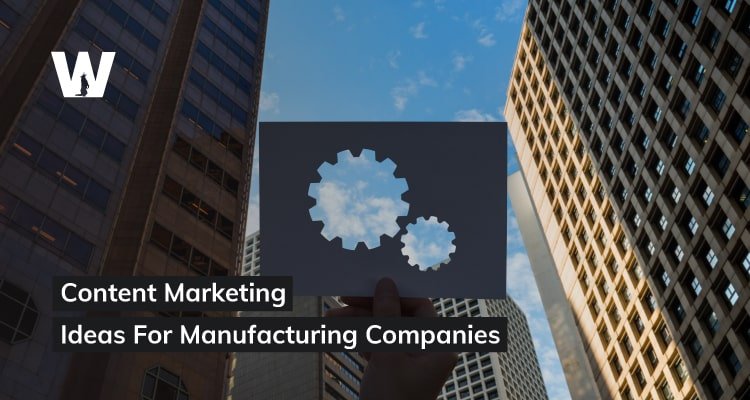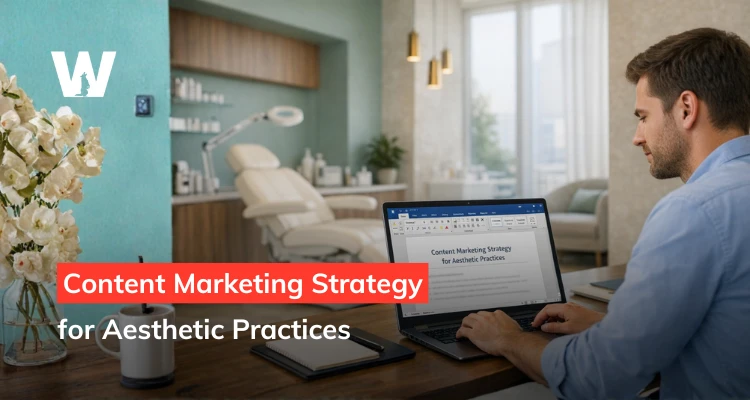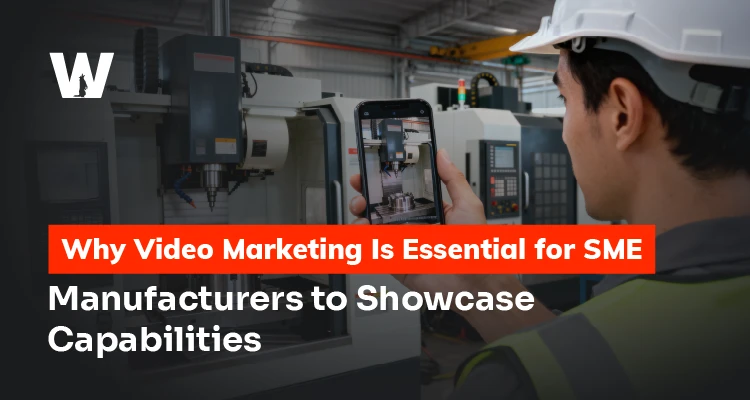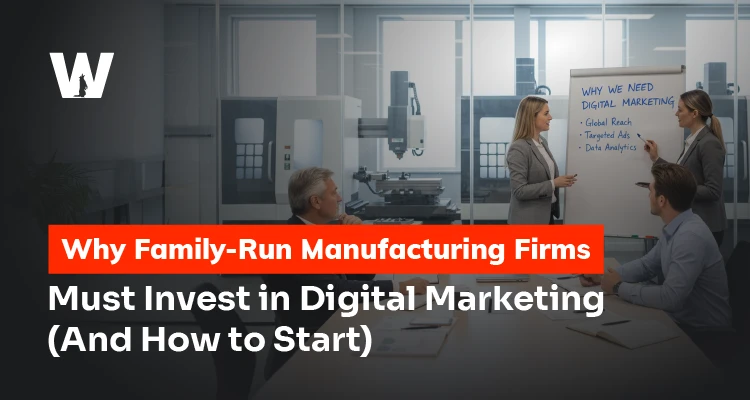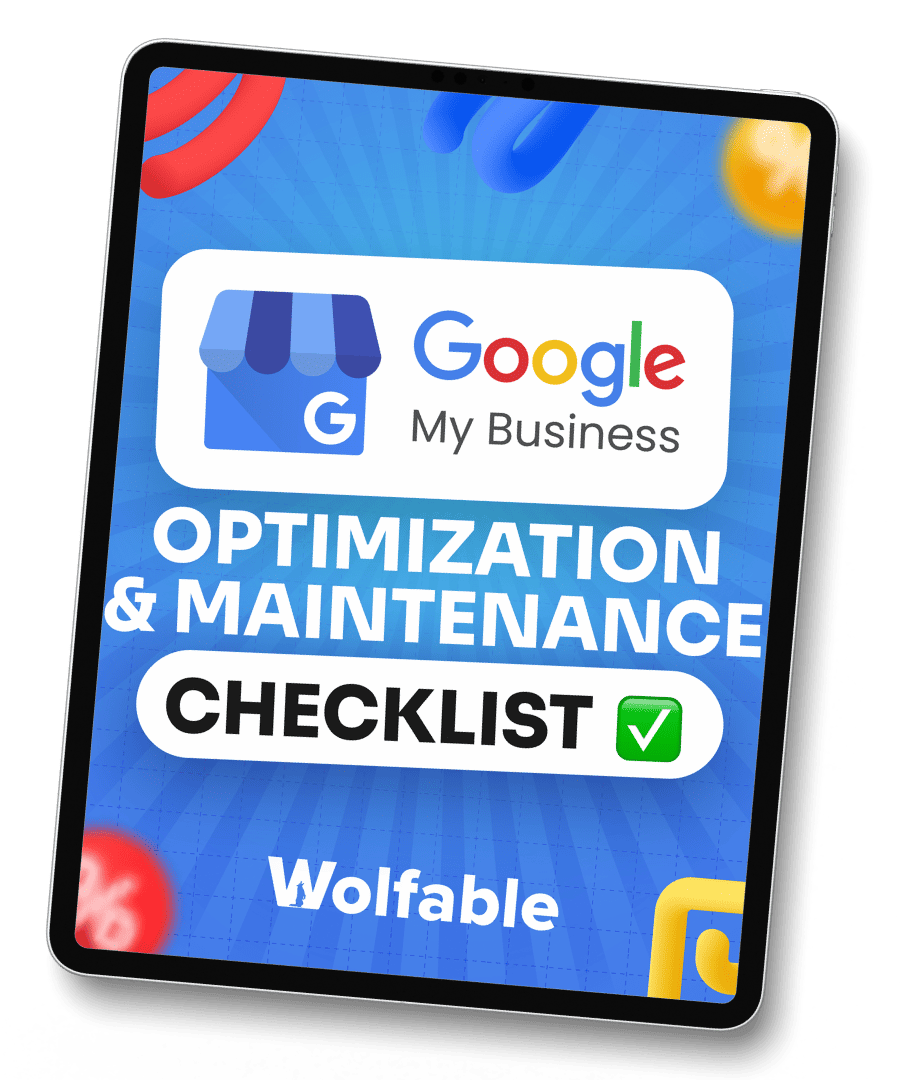Wraps up in 11 Minutes
A large number of manufacturing businesses acknowledge the necessity of content marketing for business success. However, many of them struggle to keep up with the latest content marketing trends and techniques.
In this fast-paced digital world, learning the art of content marketing and applying it to your manufacturing business can help you grow faster.
By leveraging effective content marketing strategies, manufacturing businesses can increase conversions, improve brand awareness, boost revenue, establish trust, and more.
Continue reading this blog to discover the top content marketing ideas for manufacturing companies and discover key strategies, stages, elements, and steps to create a powerful content marketing strategy.
What Is Content Marketing?
Content marketing is a strategic marketing approach focused on planning, creating, and sharing relevant and useful content with the target audience.
The written and visual content here can be blog posts, how-tos, ebooks, infographics, videos, etc., and can be shared via channels like social media, blogs, websites, podcasts, press releases, and more.
The main goal of content marketing is to reach a defined audience, increase brand awareness, and boost sales and engagement to increase revenue.
Effective content marketing requires a well-structured and planned content marketing strategy. Let’s explore what content marketing strategy is.
What Is Content Marketing Strategy?
A content marketing strategy is a plan for developing and publishing content on various platforms to drive customers and influence their buying decisions.
The strategic plan helps define the target audience, type of content, and ideal platform to distribute the content.
Why Is It Necessary To Have A Content Marketing Strategy?
An effective content marketing strategy helps manufacturing businesses increase the chances of content marketing success. Hence, if you want your content marketing to be truly effective, it’s essential to have a documented content marketing strategy.

Before we learn how to create an actionable content marketing strategy for manufacturing businesses, let’s get all the basics clear.
Types Of Content Marketing
There are different types of content marketing you can choose from. Below are six of the most common ones:
1. Online Content Marketing
This refers to the web pages where one can publish content online. Through a strong content marketing strategy, B2B businesses can rank their web pages higher in the search engine results pages, which allows the targeted audience to find them at the right time.
2. Social Media Content Marketing
It allows manufacturing companies to distribute diverse content like photos, infographics, product videos, stories, events, etc., on various social media platforms like Facebook, Instagram, Pinterest, LinkedIn, and YouTube.
3. Blog Content Marketing
Blog content marketing allows publishing informative blog articles on various topics to educate the audience and promote brand content.
4. Infographic Content Marketing
This refers to creating and sharing infographics highlighting content in easy-to-understand and visual format. The infographic includes short content with clear data and images to effectively communicate a complex message to the audience in a simple manner.
5. Video Content Marketing
Video content marketing is one of the best ways to connect with the audience, boost conversions, and improve ROI. Different types of video content can be prepared; for example, you can allow your customers to learn about your brand, product, and service through videos. These videos can be uploaded on various social media platforms and landing pages.
6. Paid Ad Content Marketing
If you want your manufacturing business to reach a broader audience, paid ad content marketing can be the right option for you. Paid ads can run on many places like social media, landing pages, and banners.
Importance Of Content Marketing For Manufacturing Companies
Manufacturing companies can highly benefit from content marketing as it gives manufacturers opportunities to reach target audiences, build trust, improve conversions, and increase revenue.
There are multiple reasons why content marketing is important for manufacturing companies. Below, we are discussing the most compelling reasons why manufacturers should invest in content marketing:
- Help educate prospects about the brand, products, and services.
- Increases brand awareness and attracts potential customers.
- Enhances quality lead generation and boosts conversion rates.
- Improves tractions on various platforms, like social media, organic search engine rankings, and email.
- Help build strong relationships with customers and business partners.
- Consistently engage an audience and build credibility
5 Elements Of Powerful Content Marketing Strategy
If you want to create a smart and effective content marketing strategy, make sure it has these five core elements:
1. Audience
When crafting a content strategy, the first thing you need to identify is the target audience. To define your brand’s audience, you need to:
- Survey your existing audience
- Research the latest industry trends
- Determine your target audience
- Keep an eye on competitors' target audience
2. Brand Story
Define your brand story (company’s history, vision, mission, and values) to involve the right message in your content.
Having a clear idea of the brand’s story helps create relevant content for the right audience and highlights the brand's purpose, values, and problem solutions.
3. Uniqueness
Find how your company is unique from the competitors. Establish your brand’s USP, as it will help create content that sets you apart from your competitors.
Your content strategy should include a plan of creating content that highlights how your company is different, how it can solve customer problems, and provide answers to your customer's questions.
4. Business Goals
Content marketing should drive results; hence, preparing a document that outlines business goals and expectations helps plan an effective content strategy to achieve those goals.
Additionally, make a list of resources, tasks to be executed, and other risks to help the team understand the plan and costs associated with content marketing strategy.
5. Action Plan
Start planning content as per the content marketing strategy. Decide content topics, content format, content distribution channel, and other key elements to add to the content calendar like keywords, target audience, success metrics, etc.
Check the content performance and evaluate the plan accordingly.
Stages Of Content Marketing
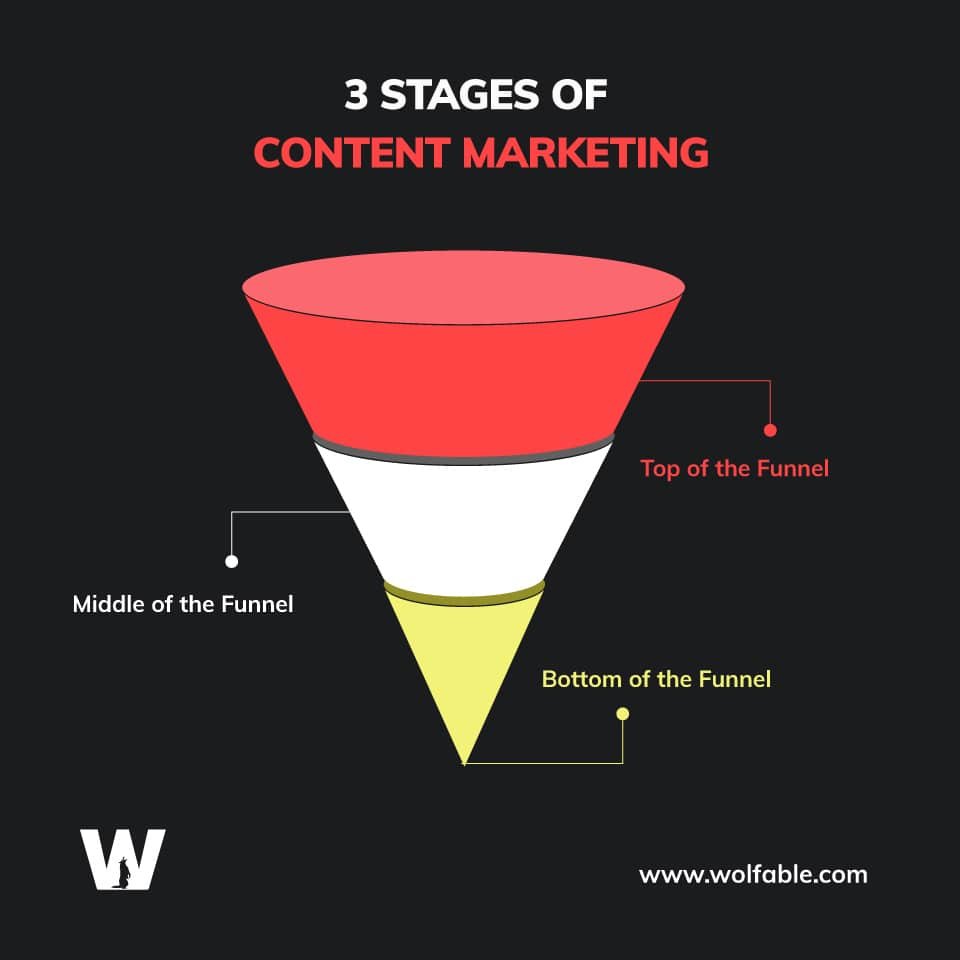
In the buying process, customers have different requirements at different stages. Hence, when planning an effective content marketing strategy, you need to create compelling and valuable content that meets the diverse needs of customers at every stage.
Let’s discuss more how content marketing works and the different stages it includes:
Stage 1: Top of the Funnel (TOFU)
At this stage, you need to plan content that builds brand awareness, educate your audience about the problem solution, and answer common questions.
Your target audience might not be aware of your product or service that can help them solve their problem, which is why it is a great opportunity to introduce your solution to them.
For the top of the funnel stage, create educational and promotional content that catches the target audience's attention.
Different types of content you can plan during the TOFU stage are
- Blog posts
- Social media posts
- Short-form videos
- Podcasts
- Infographics
- Checklists
- Ebooks
- Webinars
- Video Ads
Stage 2: Middle of the Funnel (MOFU)
If your target audience reaches the middle of the funnel, it means they are considering your product/service. They are educated about the problem and are looking for the best solution to fix that.
For the MOFU stage, your content should be designed to build trust and relationships with your audience and help them understand how your solution meets their needs. Note that the customer is considering your product but not yet ready to buy; hence, give proper attention to user behavior.
Different types of content you can plan during the MOFU stage are
- Email newsletters
- Product demos
- Landing pages
- White papers
- Case studies
- Longer-form videos
- Blog posts
- Interactive content
- Webinars
Stage 3: Bottom of the Funnel (BOFU)
The content you create for bottom-of-the-funnel marketing should aim to turn your prospects into buying customers. Create content that converts, creates urgency, and drives action through powerful CTAs resulting in sales generation by convincing the audience to make a purchase.
Different types of content you can plan during the BOFU stage are
- Personalized emails
- User-generated content, like customer testimonials
- Case studies
- Pricing pages
- Competitor comparison blog posts
- Video demos
- White papers
- Remarketing campaigns
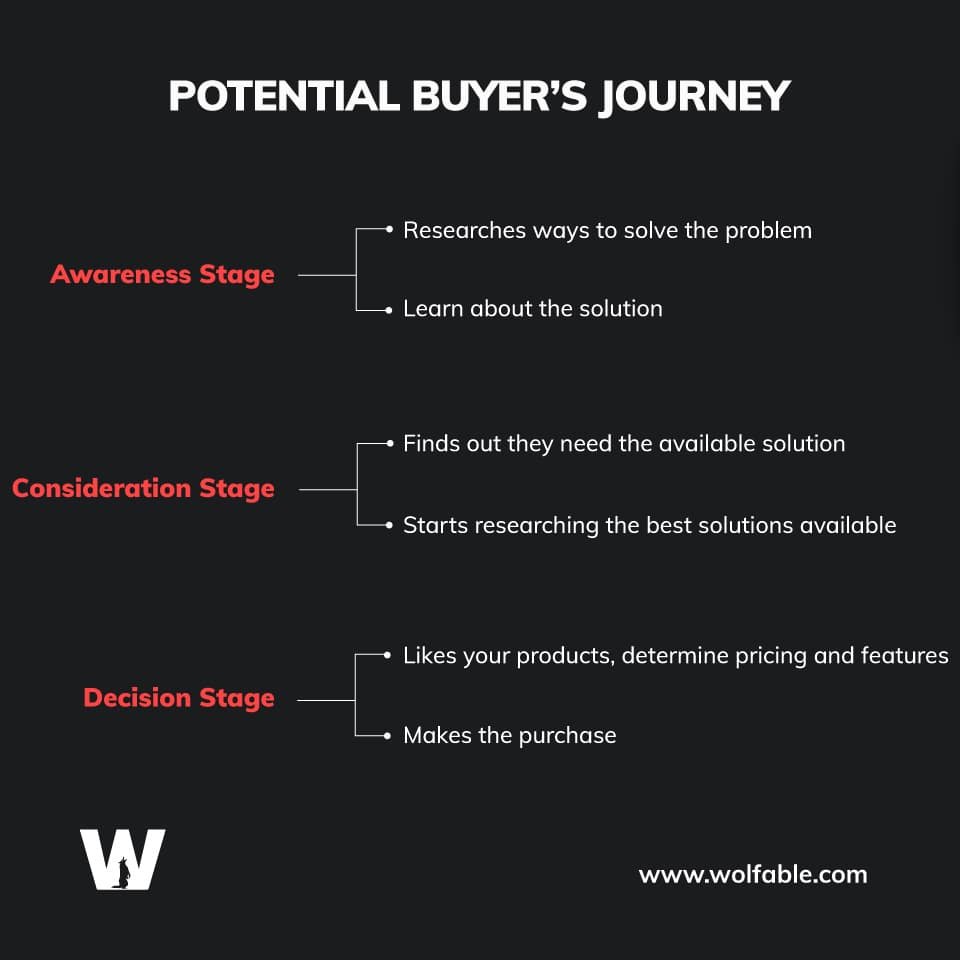
Content Marketing Ideas For Manufacturers
1. Blog Posts
It helps educate the audience about problems and promote your solutions online. It can be published online on the website and can be also promoted on other channels.
Benefits of Blog Posts:
- Increases popularity and SEO rankings
- Boost brand authority
- Drives organic reach and traffic on the website
- Help generate leads and conversion
- Gives long-term results
2. Videos
They are an excellent way to reach a broad audience and demonstrate your product in action. Manufacturers can publish factory videos, product working videos, and instructional videos.
This will help inform your audience about the product and how it can solve the problem in easy-to-understand language and visuals.
Benefits of Videos:
- Engages audience more
- High accessible
- Cost-effective
- Educates audience
- Quicker conversions
3. Social Media Posts
If you want to increase brand awareness, reach a wide audience, and build followers interested in knowing your product, then social media posts are an excellent option.
Various social media channels can be used to promote your content and reach targeted customers. For manufacturers, LinkedIn is found to be the most effective social media platform.
Benefits of Social Media Posts:
- Reach large audiences
- Direct connection with your audience
- Access to paid advertising services
- Drive traffic to your website
4. E-Books
E-books are an important element in content marketing for the manufacturing sector. The content for E-books includes buyers’ specific needs in the manufacturing industry, the brand’s expertise in the sector, and the product's ability to face challenges and solve them.
Usually less than 100 pages, ebooks can be written in easy-to-consume formats with appealing visuals and data for effective communication with the target audience.
Benefits of E-Books:
- Increases credibility
- Bring quality leads
- Engage target audience
- Help convert prospects into a buyer
5. Case Studies
A case study can be highly beneficial in convincing the audience and turning them into customers. A good case study about product performance helps establish trust and gives readers insight into the benefits of products, their effectiveness, and skills handling challenges.
Benefits of Case Studies:
- Builds instant credibility and trust
- Generates qualified leads
- Powerful social proof
6. Educational Webinar
An educational webinar is one of the most cost-effective methods to generate quality B2B leads. Webinars are generally provided through video, they can be either pre-recorded video or streamed live.
Webinar gives the opportunity to reach a large audience, build brand awareness, and provide information to the audience with visual and auditory content.
Benefits of Webinar:
- Generate high-quality leads
- Reach new audience
- Build thought leadership
- Create content for repurposing
- Product promotion
- Expert positioning
7. Product Comparison Guide
Product comparison guides can be a great way to help your audience decide when considering multiple solutions. You can create pros and cons content, product comparison posts, and use case guides.
Benefits of Product Comparison Guide:
- Provide clarity to help consumers figure out the best product
- Help prospects make the decision
- Speeds up the sales process
8. User-Generated Content
User-generated content (UGC) refers to content created by users and not created by the brand itself. It can be in different forms, like images, videos, reviews, and comments. It can be a great way to build and engage with your target audience.
Benefits of User-Generated Content:
- Establish greater trust
- More conversions
- Increase personalization
- Engage audience
Other than these, there are a plethora of more content ideas that can be beneficial for B2B marketing. Let’s take a look at them as well.
- Podcasts
- How-tos
- Newsletters
- Listicles
- Physical books
- Checklists
- Templates
- White papers
- Testimonials
- Quizzes
- Interviews
- Slide decks
- Memes

Steps To Create Actionable Content Strategy For Manufacturing Companies
Step 1: Determine Target Audience
Find your target audience and focus on people with specific interests and needs.
Step 2: Establish Content Marketing Goals
Discover goal-setting frameworks and set the content marketing goals as per your business objectives. The two goal-setting frameworks are SMART and CLEAR goals.
- SMART goals (Specific, Measurable, Achievable, Relevant, Time-Bound)
- CLEAR goals (Collaborative, Limited in volume and duration, Emotional, Appreciable, Refinable)
SMART goals are more rigid and can help track and measure success. On the other hand, CLEAR goals are more flexible and ideal for evolving environments.
Step 3: Audit Content
The next step is content auditing. To get the most out of your content, it’s essential to analyze and improve your existing content. Plus, content auditing is important for generating more organic traffic, ranking higher in search engines, and boosting engagement.
Step 4: Content Calendar
Create a content calendar to include content formats and plan a content publishing schedule for timely content posting.
Step 5: Content Development
It’s time to create effective content as per the content strategy. During this step, you need to develop high-quality content that resonates with the target audience and convert them into customers.
Step 6: Distribute Content
After developing content, choose specific content channels to distribute the content. To publish the content, make sure to choose the right platform that provides content to the right audience.
Step 7: Analyze Content Performance
Lastly, analyze your content performance by measuring the results. After determining the content performance, make the necessary changes to ensure your marketing efforts pay off.
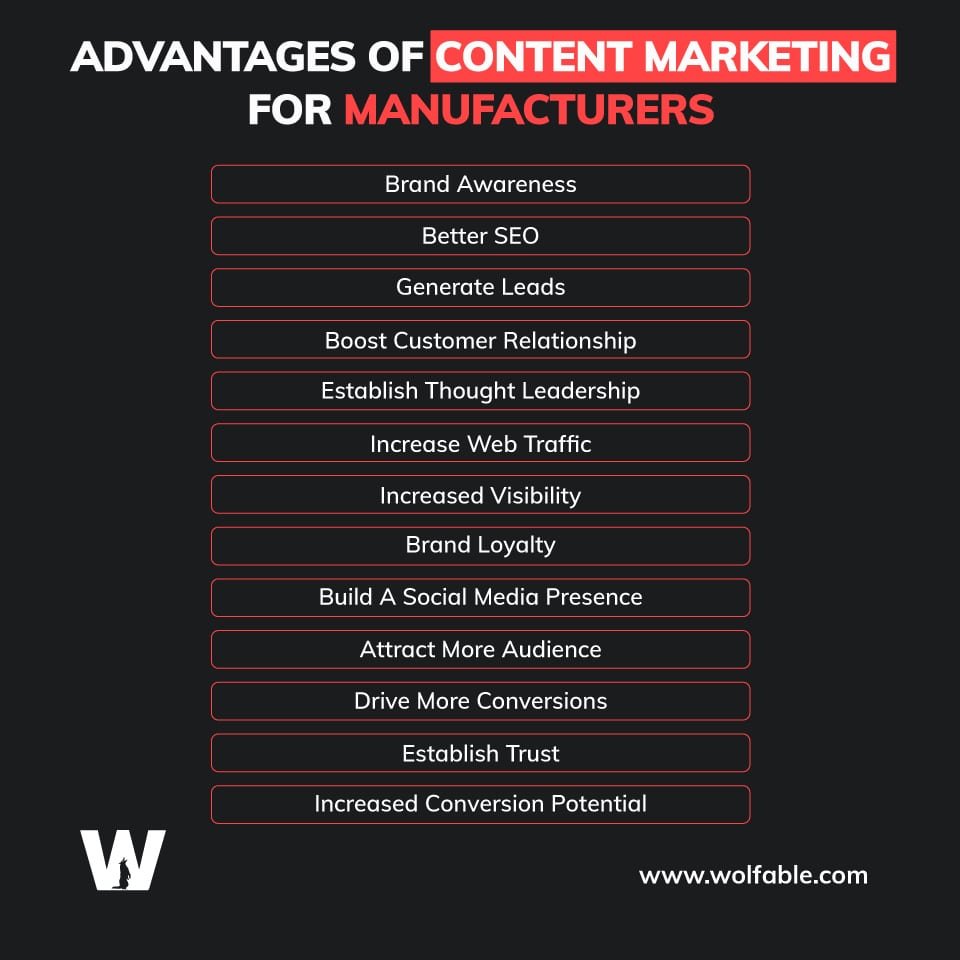
Succeed In B2B Content Marketing With Wolfable
Every piece of high-quality content can bring dozens of benefits.
As you can see, there is no one-size-fits-all when it comes to content marketing. Depending on your business objectives, you can plan an effective content strategy and choose from the different types of content ideas mentioned above for manufacturing companies.
With effective content marketing, manufacturers can reach their target audience, increase conversions, boost revenue, grow brand awareness and recognition, and build relationships with prospects and customers.
If you want to truly succeed in content marketing, collaborate with the most trusted content marketing agency, which excels at each aspect of content marketing for manufacturers.
Wolfable is a full-service digital marketing agency for manufacturers. We have more than 8 years of experience in helping numerous manufacturers scale and achieve desired results.
To get started, contact us today!


